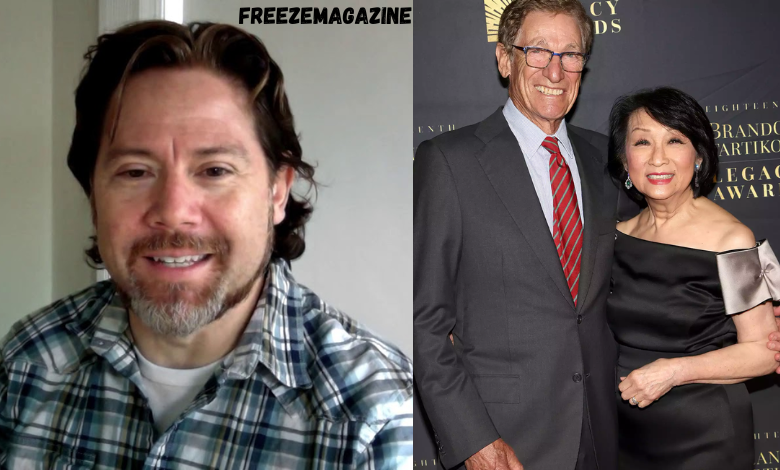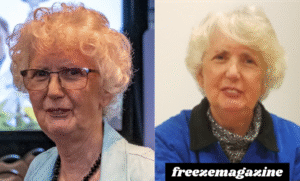Martha Mo Kershaw: A Legacy of Community Leadership and Public Service
Introduction
Martha Mo Kershaw’s name is often associated with dedicated community service, effective communication, and steadfast leadership. With a professional journey grounded in education, public engagement, and civic development, Kershaw has developed a career defined by service and growth. Her career spans decades of leadership roles, contributions to community enrichment, and a consistent commitment to making systems more inclusive and accessible. This blog post outlines who Martha Mo Kershaw is, how she started, her impact in public service, and where her path may lead in the coming years.
Who is Martha Mo Kershaw?
Martha Mo Kershaw is known primarily as a leader in public service and community engagement. Her roles have often placed her in positions where she was required to manage, direct, and engage communities through structured programs, outreach initiatives, and educational services. She is recognized not only for her organizational leadership but also for her values-driven approach in various civic and educational domains. Rather than seeking public attention, Kershaw’s method has always been rooted in building lasting relationships, supporting local institutions, and improving the operational foundations of the communities she serves.
Innovative Beginnings to Community Focused
Kershaw’s career has consistently shown a shift from administrative tasks toward community-focused innovation. Her early roles were tied closely to structured environments, such as educational institutions and municipal offices, but her approach quickly evolved. She introduced innovative frameworks for community outreach, designed inclusive programs that responded to public needs, and emphasized direct engagement rather than top-down communication. This shift was not spontaneous; it reflected years of observing systemic limitations and choosing to work toward reforms that emphasized collaboration over control.
Initial Life and Education
Martha Mo Kershaw’s upbringing played a formative role in shaping her worldview. She was raised in a household where education and civic responsibility were emphasized. Her early education was marked by a strong performance in both academics and extracurricular involvement. Kershaw pursued a degree in communications and public administration, later supplementing her academic background with specialized training in leadership, policy analysis, and urban development. Her educational path shows a deliberate attempt to equip herself with both theoretical and practical tools for leadership.
Family Heritage
Kershaw often attributes her sense of service and discipline to her family. She was raised in a family where public service was considered a responsibility, not an option. Her parents and extended relatives had been involved in teaching, healthcare, and local governance. This environment laid the foundation for her own career decisions. The family’s emphasis on giving back to the community helped foster a mentality that saw service not as charity, but as civic duty.
Her background is not one of privilege, but of responsibility. The values she inherited were closely tied to collective growth and the importance of grassroots-level work.
Career Roles: Service via Engagement and Communication
Kershaw’s professional journey began with roles in the administrative departments of educational institutions. Early in her career, she worked in program coordination and public affairs, managing internal communication and outreach efforts. From there, she moved into municipal roles that allowed her to operate on a broader scale. These included positions such as Director of Community Services, Public Relations Officer, and later, Executive Leadership roles. In all these positions, she developed models that were community-oriented and service-driven.
Her communication strategies were centered on inclusion. She implemented multilingual communication frameworks in neighborhoods with diverse demographics and championed accessible engagement platforms for the public.
Career Growth & Community Enhancement
As her experience grew, Kershaw took on roles that gave her more direct influence over policy and program implementation. She led city-wide initiatives aimed at improving educational outreach, public health access, and housing coordination. One of her notable projects included the integration of nonprofit service providers into public planning efforts.Instead of working in isolation, she emphasized p artnerships between local governments and community-based organizations. She also helped implement community forums, online engagement tools, and citizen advisory panels, which improved trust in public institutions.
Her leadership style avoided spectacle. She focused on measurable outcomes and ensured transparency at every level. This pragmatic approach earned her recognition among peers and positioned her as a reliable figure in local governance.
Martha Mo Kershaw’s Leadership Approach and Beliefs
Kershaw’s leadership style is defined by practicality, collaboration, and accountability. She believes in systems where feedback loops are integrated and the public’s voice is a key determinant in decision-making. Rather than adopting an authoritative approach, Kershaw leads by building consensus and ensuring her teams are aligned with community needs. She is also known for being data-driven. Kershaw often ties community programs to long-term metrics, ensuring that every project is sustainable and accountable. However, she balances this with adaptability. She is not rigid in planning and often revises strategies mid-course if public needs or data indicate a change in direction.
Her leadership beliefs are deeply rooted in ethical governance and the principle that public institutions should act as facilitators, not gatekeepers.
Credentials and Continuous Education of Martha Mo Kershaw
Kershaw holds a Bachelor’s degree in Public Administration and a Master’s degree in Organizational Leadership. Over the years, she has pursued multiple certifications in nonprofit management, conflict resolution, urban development, and diversity training. She frequently participates in professional development programs, believing that evolving community challenges require updated skill sets. Her learning never stopped with formal education. Kershaw has attended international conferences, regional workshops, and university-led leadership labs, keeping her methods relevant and grounded in current realities.
Her commitment to continuous learning has also influenced her mentorship style. Many younger professionals credit Kershaw with pushing them toward professional growth and encouraging educational advancement.
Obstacles and Personal Growth
Like many professionals in the public sector, Kershaw faced institutional resistance. Her attempts to restructure outdated systems were often met with skepticism. Budget constraints, political pushback, and administrative inertia were consistent challenges. One significant hurdle occurred during a community redevelopment initiative, where her push for more inclusive zoning policies was stalled by local opposition. Rather than retreat, she initiated a dialogue-based campaign and restructured the proposal after gathering new public feedback. The revised plan gained approval and set a precedent for future zoning models.
These challenges not only tested her leadership but also provided opportunities for personal and professional growth. They reinforced her belief in patience, persistence, and community validation over quick decisions.
Influence on Community and Future Path
Kershaw’s influence on the communities she has served can be seen in the programs that continue to run long after her direct involvement. From educational partnerships to housing access networks, her model has focused on longevity. She has trained community leaders, built partnerships between public and private sectors, and introduced practices that now serve as templates in neighboring regions. Her influence is more systemic than symbolic. As she looks ahead, Kershaw has hinted at focusing more on policy advising and education. She has been invited to lecture at universities and may consider writing or consulting on institutional leadership and civic design.
Martha Mo Kershaw’s Personal Life
Outside of work, Kershaw leads a relatively private life. She is known to spend time with close family and friends, participate in local arts and culture initiatives, and volunteer for causes related to education and mental health. She has also served on several boards of nonprofit organizations, focusing on youth empowerment and community mental wellness. Those close to her describe her as calm, reflective, and deeply committed to ethical standards—both in personal and professional settings. While she doesn’t maintain an active public presence on social media or in public discourse, her influence in policy and leadership circles remains strong and consistent.
A Quiet Influence with Lasting Possibilities
Unlike many public figures who seek prominence through visibility, Martha Mo Kershaw’s influence has been built quietly. Her projects, policies, and initiatives carry her imprint, but rarely her name. This approach has allowed her to focus on institutional change and measurable impact rather than personal recognition. Her style proves that leadership does not require the spotlight, only intention and execution. By choosing to build quietly but consistently, Kershaw has created possibilities for communities that extend beyond her tenure.
Future Prospects
Looking to the future, Kershaw has a range of potential avenues. With decades of practical experience and institutional knowledge, she could enter academic spaces as a lecturer or policy researcher. There’s also potential for her to serve as a consultant for national or international community development programs. There are indications that she might take on mentorship roles more formally, helping train the next generation of civic leaders. Additionally, her interest in writing could materialize into publications or toolkits for local governance and leadership practices. Whether or not she remains in public roles, her model of community-centric, data-informed leadership is likely to influence new civic structures.
Final Thoughts
Martha Mo Kershaw’s story is not one of headlines or political campaigns. It is one of focused effort, community respect, and ethical leadership. Her ability to balance administrative tasks with public engagement, data with empathy, and leadership with service has made her a reliable figure in public service. Her journey offers lessons on quiet impact, strategic thinking, and the power of local leadership. As communities evolve and public institutions face increasing demands, the models developed and refined by Martha Mo Kershaw remain relevant—and essential.
FAQS
1. Who is Martha Mo Kershaw?
Martha Mo Kershaw is a public service leader known for her work in community engagement and educational outreach.
2. What is Martha Mo Kershaw’s leadership style?
She leads through collaboration, data-driven strategies, and a focus on long-term community improvement.
3. What are some roles Martha Mo Kershaw has held?
She has worked as a Director of Community Services, Public Relations Officer, and leadership advisor in civic institutions.
4. Has Martha Mo Kershaw influenced policy development?
Yes, she has been involved in designing inclusive public policies and civic development frameworks.
5. What is Martha Mo Kershaw doing now?
She is focusing on mentorship, policy advising, and possibly writing about civic leadership and institutional reform.








Post Comment